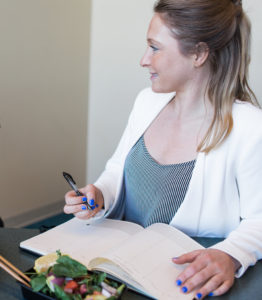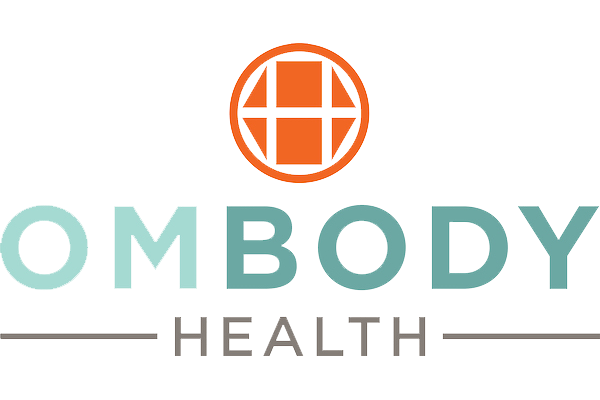The subtle energy of our food becomes our mind.
– The Upanishads
I don’t believe in diets, I believe in knowing, loving and respecting ourselves. This means, developing a way of eating and a way of living that illuminates our true nature, keeps our inner world clear and clean, and feels sustainable forever. Most of the time, I choose healthy, whole foods because of the way they make me feel and think, but not always. I too have impulses.
Recently, I decided to give the Whole Life Challenge a test run. The objective being two-fold: 1. To explore the integrity of this program before recommending it to my coaching and corporate clients; 2: To foster my mental acuity, spiritual connection, and self-confidence as I transform into the next phase of my life. In order to maximize my personal gains, I opted to follow the performance tier for the first couple weeks, which means buckling down on my eating regimen – i.e., eating totally clean and eliminating all the crap.
As I continue into week 2 of the challenge, I feel:
- mentally and energetically clear,
- vital yet calm,
- more creative,
- emotionally and spiritually aligned,
- more loving of myself and others.
- I come into a flow state much more readily.
I am also reminded of how quickly our bodies and minds can transform when we clean up our diets. It’s important to note that there is certainly no one-size fits all approach to doing this. What is right for my body may be different than what is right for your body. And it doesn’t stop there. What is right generally varies depending on factors like climate and life stage (Ayurveda). Understanding and exploring the right foods for my body continues to be critical to my wellbeing journey.
Tending to my awareness of where and when I cling and crave—not just to food—has been another foundational element of my wellbeing journey. And I am always amazed by the power that food has over me, it feels primal (because it is!).
Thus, despite feeling and knowing the affects that clean eating has on my being, I still make choices at times that swing me in the other direction—that blur my true nature and clog and clutter my inner world. At this point in my life, I am grateful that these choices never dominate even a full day, but I am keenly aware of their allure and appeal.
This is why I offer you my top 3 unconventional tips for curbing emotional and impulsive eating. For me, prioritizing healthy eating and lifestyle habits goes far deeper than just making the right choices day in and day out. To support ourselves in making choices that will enhance, not hinder, our wellbeing, we must be in tune with the short-term implications of our food choices on our energy, mental focus, and relationship with ourselves. Most importantly, we must nurture self-awareness, self-respect and self-love, and learn to look within ourselves for fulfillment.
3 Unconventional Ways to Curb Emotional and Impulsive Eating
1. Ask yourself, am I okay with borrowing energy and time from the future?
Sugar, alcohol, flour products and even coffee (to name a few) all hinder my energy and focus later on. What depletes your energy? As I write this, I am reminded of an observation made by Chris Bailey, author of The Productivity Project: Having a cup of coffee is like borrowing time and energy from later in the day, while having a drink is like borrowing time and energy from the next day.
Like Bailey, I’ve also seen this be true in my life, and knowing this has been the leverage I need at times to abstain when cravings arise. When you have the urge to reach for something convenient (or sweet) over something healthy, keep in mind that you may not actually be saving time by choosing convenience, you may be losing time – not only in the short-term, but also at the end of your life.
Tip: If you’re a coffee lover, try using coffee strategically, such as right before a big meeting or event, when you know you can relax a few hours later. Or try replacing it with a cleaner, gentler stimulant like matcha green tea or mate.
2. Meditate daily.
Meditation is hands down my most important ritual for curbing emotional and impulsive eating (and everything). Why, because it forces me to confront myself and feel into my body. When my body and mind are not clear and clean, I can feel it and hear it most profoundly when I sit still and listen. Meditation fosters my integrity and ability to make choices that are aligned with my wellbeing. Most powerfully, meditation has allowed me to make friends with myself, to know, love and respect myself.
We all share a deep-seated desire to shift our consciousness, to find some relief from the day-to-day monotony, to quiet the ego, to expand our thinking and feeling into new realms. And we’re not alone, other animals have this desire built into them too. Meditation is one way to fulfill this primal desire. (Others include alcohol, drugs and even food.)
A soft, sweet, loving meditation helps me to steep in my intrinsic wholeness, placating the desire to reach for things outside of myself, such as food, for fulfillment (see #3).
Tip: If you are looking for guidance to start or re-start a meditation practice, I love the Insight Timer App. There are free guided meditations of varying lengths and themes that can bring you closer to yourself and your body.
3. Learn to look within yourself for that which you are seeking.
Many times, we unconsciously use food or drink to fill a void deep within that can never be filled with anything tangible. We also cling to people, jobs, places, and things for the same reason. Ultimately, this tendency comes back to an intrinsic human need for certainty (i.e., comfort, security). But like the age-old idiom “happiness is an inside job” by William Arthur Ward, we will never find lasting certainty, comfort or security in anything outside of ourselves.
When it comes to food, most of us intuitively know it cannot bring lasting fulfillment, but might unknowingly reach for food or drink when even a tinge of discomfort, uncertainty or emptiness arises. The real truth is, that brownie is never going to fulfill that which we are truly seeking. Drinking that glass of wine will only blur our ability to feel into our intrinsic wholeness.
Cultivating belief, faith and trust in myself and the Universe (some may call this God) is the way that I fill my human need for certainty in a world of unknowns, discomfort, and suffering. Leaning into this trust soothes me, making me less impulsive and reactive when I feel challenged, emotional, or uncertain, and more intentional in the choices I make around food and in life.
Tip: Developing a spiritual practice that cultivates trust for ourselves and our life path is the only way to foster lasting certainty, comfort and security. When stress, emotion or challenges arise that trigger uncertainty and fear, rather than dwelling in questions like, Why does this always happen to me? (which create resistance, insecurity and fear), choose to shift into a more trusting mindset by asking, Why is this happening for me? Journal or talk with a friend about the light within the struggle, and even if you cannot identify any positives or lessons, trust that in time the sun will shine again, and that as long as you are listening to your intuition and learning along the way, you’re doing your best.
Final Thoughts
Is the way we feel, think and relate to ourselves and others contingent upon the clarity of our vessel (i.e., body and mind)? I believe the answer is a definitive, yes. When we abstain from the things that clog and clutter our bodies and minds for even just a few days, we start to think and feel more clearly and deeply. So next time you find yourself impulsively reaching for something to eat or drink, think twice about how you want to show up.
 About the Author
About the Author
Allie Andrews is the Founder and Program Director at OmBody Health. She is a Certified Health Coach and self-care advocate and author. Allie and her team have been transforming employee wellbeing since 2014. Learn more.


Comments
6 responses to “3 Unconventional Ways to Curb Emotional Eating”
This is wonderful!! Brilliantly conveyed and very encouraging. Thank you for these important tips and valuable information.
Thank you, Leslie!!!
Hi Allie,
Your grandmother Carolyn forwarded this newsletter to me. It is wonderful! Just hours ago I finished a health coaching session with a client struggling with emotional eating. This article was so timely and extremely helpful. I am going to forward it to my client and encourage her to subscribe to your very informative and insightful newsletter. Wishing you all the best!
Thank you Earline for reading and sharing! Emotional eating is something that so many of us struggle with at times – I hope these tips are helpful for your client. He/she is lucky to have you as their coach!
Spoken like a true practitioner and loving soul.
Thanks for reading 🙂